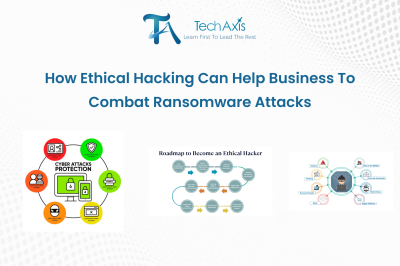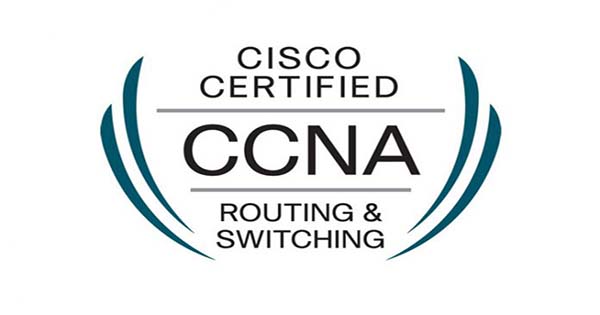
How Ethical Hacking Can Help Businesses Combat Ransomware Attacks
Cybersecurity Ventures projects that ransomware damages will escalate to $265 billion annually by 2031, with attacks occurring every two seconds. Restricting access to important data through these attacks represents a major security threat that makes organizations helpless and forces them to pay high ransoms to regain data access. Malicious software, which functions as ransomware, gets encoded together with important computer data until attackers receive payment from victims. Unauthorized access granting occurs through using phishing emails together with exploiting system vulnerabilities and taking advantage of compromised credentials. Businesses today face ransomware as one of their most serious cyber threats due to operational disruptions, reputational damage, and financial losses they produce.
The increasing complexity of ransomware threats demands that businesses take advanced steps for protecting their system infrastructure. Ethical hacking functions as penetration testing and white-hat hacking for preventing ransomware attacks from happening. Mimicking actual cyber attacks allows ethical hackers to spot security holes before dangerous events while developing activities that secure systems ahead of time. The system utilizes ethical hacking to boost business security measures and meet requirements established by industry standards and best practices. The progressive nature of ransomware attacks has made ethical hacking into a mandatory defense strategy that replaces the previous discretionary stance. This blog will examine ransomware attack varieties along with business prevention techniques while focusing on how ethical hacking services combat cybersecurity challenges.
How Ethical Hacking Can Combat Ransomware Attacks
Ransomware attacks pose a significant global organizational threat that causes breaches of data along with financial damage and operational system losses. The risks from these threats can be minimized through ethical hacking methods because ethical hackers both discover weak points and test security breaches during their defense improvement work. The main methods ethical hacking produces to fight ransomware attacks are explained in detail below.
Proactive Vulnerability Assessment
Proactive Vulnerability Assessment is a security practice that involves regularly scanning and analyzing a system, network, or application to identify and fix potential weaknesses before cybercriminals can exploit them. Unlike reactive security measures, which address threats after an attack, this approach helps organizations stay ahead of risks by continuously monitoring and improving their defenses. It includes automated scans, manual testing, and risk analysis to strengthen cybersecurity and reduce the chances of data breaches, malware infections, or ransomware attacks. Regular assessments ensure a more secure digital environment and protect sensitive information.
- Identify and patch vulnerabilities: Ethical hackers through vulnerability assessments detect weak points existing in software, alongside operating systems, as well as network configurations that ransomware attackers leverage. Through their security scanning procedures, ethical hackers enable organizations to locate their weaknesses and outdated software thus enabling organizations to fix these issues before cybercriminals exploit them.
- Prioritize critical systems: Different systems in an organization possess unique risk degrees, thus organizations must establish priority protocols for their protection. Software security assessments performed by ethical hackers focus on critical infrastructure components, which include financial systems and both customer databases and proprietary data stores. High-priority assets should be the first assets that organizations need to protect because it helps lower the consequences of ransomware attacks.
Penetration Testing
Penetration testing, also known as ethical hacking, is a security practice where experts simulate cyberattacks on a system, network, or application to find vulnerabilities before real hackers do. It helps businesses identify weak points in their security and fix them to prevent data breaches, ransomware attacks, and other cyber threats. Penetration testers use various tools and techniques to test defenses, ensuring that security measures are effective. Regular testing is essential for organizations to stay ahead of cybercriminals and protect sensitive data.
- Simulate Ransomware Attacks: The evaluation of cybersecurity defenses against ransomware attacks occurs through penetration testing, which conducts actual tests as ransomware threats. Ethical hackers replicate cybercriminal tactics to discover security control vulnerabilities that lead them to provide recommendations for breach prevention.
- Test incident response plans: An organization must conduct tests of incident response plans to secure its response capabilities against ransomware attacks. Through stress-testing incident response measures, ethical hackers evaluate how well an organization can detect attacks so they can react to and restore operations from such incidents. The tests enable organizations to strengthen their strategies which enables them to swiftly stop ransomware attacks and recover their data when attacks occur in reality.
Social Engineering Assessments
Social Engineering Assessments are security tests designed to evaluate an organization's ability to recognize and defend against manipulation-based cyber threats. Cybercriminals often use deception, psychological tricks, and impersonation to exploit human vulnerabilities rather than technical flaws. These assessments involve simulated phishing emails, pretext phone calls, fake social media interactions, or in-person attempts to access sensitive information. By conducting these tests, businesses can identify weak points in employee awareness and train staff to recognize and resist social engineering attacks, reducing the risk of data breaches, fraud, and unauthorized access.
- Identify and mitigate social engineering risks: Social engineering risks become identifiable through methods that allow businesses to reduce their exposure to potential ransomware attacks by manipulating employees using deceptive tactics. Organizations use social engineering assessments performed by ethical hackers to determine their exposure to interpersonal attack methods. Ethical hackers examine work-related patterns alongside employee security knowledge and evaluate staff conduct to find possible vulnerabilities.
- Train employees: Employee training stands as the most effective method to defend organizations from ransomware attacks. Ethical hackers provide essential training to workers, which helps them discover phishing strategies and profile strange website links as well as detect social engineering threats. Simulated phishing exercises together with educational initiatives enable their teams to acquire necessary skills for detecting and avoiding possible cyberattacks.
Incident Response and Recovery
Incident Response and Recovery refers to the process organizations follow to detect, respond to, and recover from cybersecurity incidents such as data breaches, ransomware attacks, or system failures. It involves a structured approach that includes identifying threats, containing the damage, eradicating the threat, and restoring normal operations. A strong incident response plan minimizes downtime, protects sensitive data, and prevents future attacks. Recovery efforts focus on restoring systems, analyzing the incident to improve security, and implementing measures to prevent recurrence. Businesses that prioritize incident response can reduce financial losses and maintain customer trust.
- Develop and refine incident response plans: The development process for incident response plans through ethical hackers enables organizations to create specific ransomware threat-focused protocols. Ethical hackers assist organizations to create specific protocols which enable defending business operations during ransomware attacks through backup mechanisms, system recovery methods and network segmentation protocols. Their technical knowledge enables them to develop anti-escalation ransomware prevention measures.
- Conduct post-incident analysis: Following ransomware attacks ethical hackers run post-incident analysis for identifying security vulnerabilities and discovering the breach entry points. The process allows organizations to develop stronger protective measures which reduces the chances of such attacks in the future.
Why TechAxis's Ethical Hacking Training Course Will Help You?
Our Ethical Hacking Training Program will help students develop essential cybersecurity skills, including vulnerability assessments, penetration testing, and social engineering assessments. These skills are crucial for preventing security threats and protecting businesses from cyberattacks. With guidance from industry experts, students stay updated on the latest hacking techniques, cybersecurity technologies, and professional standards. The program also emphasizes hands-on experience through practical labs, where learners engage in security simulations and penetration testing exercises to enhance their problem-solving and technical expertise.
Additionally, TechAxis prepares students for globally recognized certifications such as Certified Ethical Hacker (CEH), boosting their career prospects. With the growing demand for cybersecurity professionals, graduates can pursue roles such as ethical hacker, penetration tester, cybersecurity analyst, and security consultant. Our comprehensive training ensures that students gain the expertise needed for a successful and rewarding career in cybersecurity.
Conclusion
Licensed security professionals who simulate cyberattacks have become essential because cyber attacks such as ransomware keep rising in number. Through ethical hacking, organizations receive assistance with vulnerability detection to build secure systems that stop potential breaches from happening. Strategic proactive security measures through ethical hacking serve to defend important digital systems and financial resources against unauthorized access.
The Ethical Hacking Training Course provided by TechAxis delivers necessary cybersecurity skills which cover vulnerability assessment as well as penetration testing and social engineering approach. Students acquire real-world cybersecurity challenge experience through hands-on training, which industry experts guide them through under their direct supervision. The course trains students for the must-have and essential cybersecurity certifications, including Certified Ethical Hacker (CEH), which creates better prospects for their cybersecurity career. TechAxis offers all the vital knowledge along with specific skills and certification preparation needed for people who aspire to be ethical hackers, penetration testers or security analysts.
A career choice in cybersecurity allows people to experience thrilling possibilities and sustain their career while attracting abundant job market opportunities and steady financial rewards. TechAxis ethical hacking programs lead you toward successful career prospects in this fast-moving industry.
Time is now to protect systems and block cyberattacks so you can construct a rewarding professional path. Become a member of TechAxis' Ethical Hacking Training Course right now.











